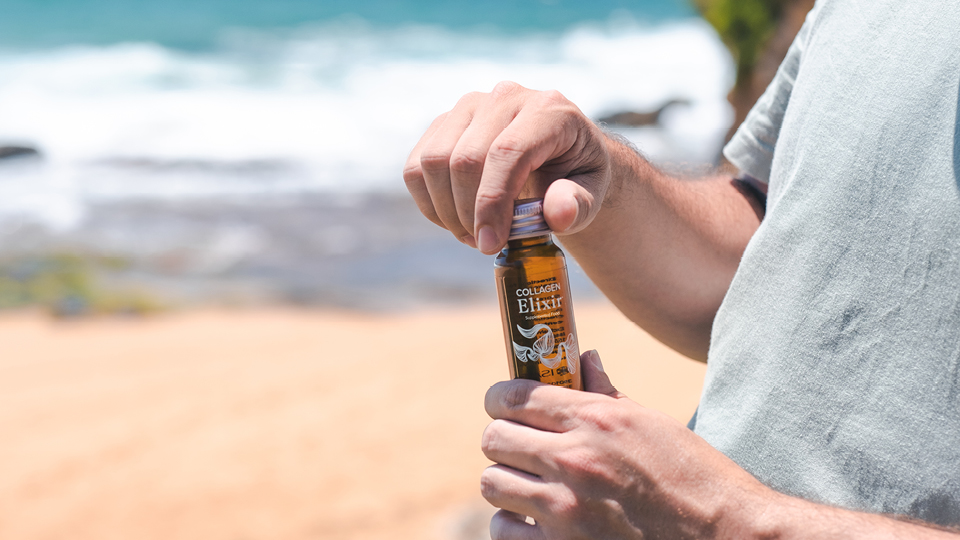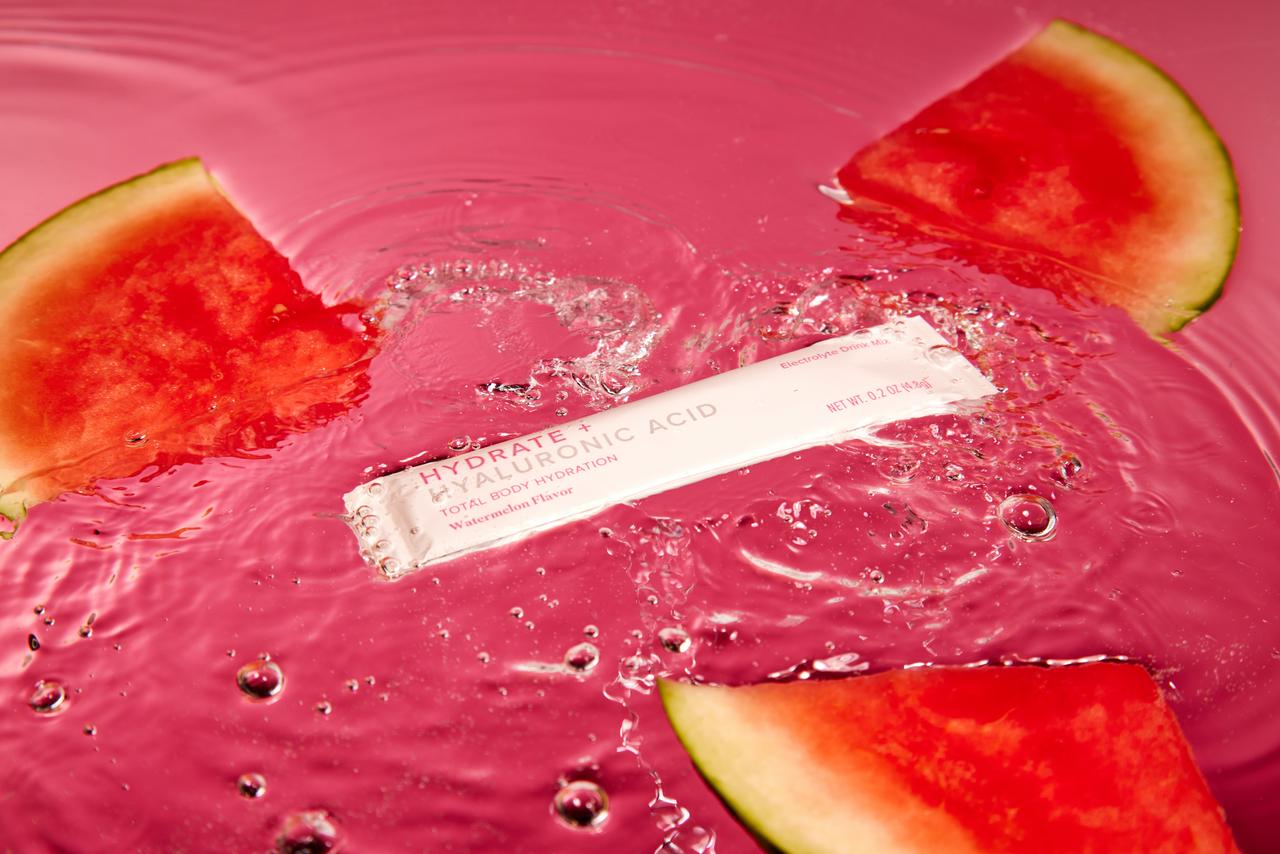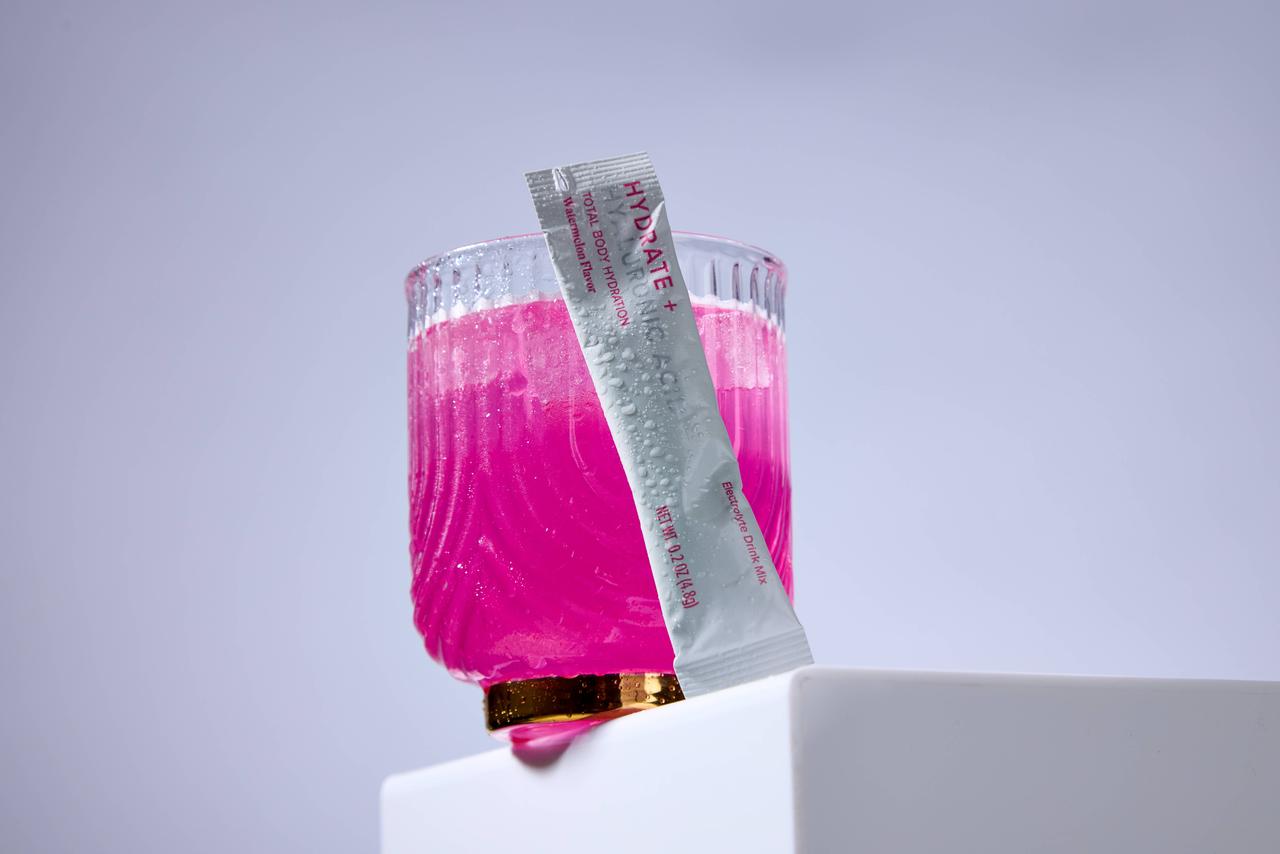There are many different types of collagen to choose from, and each has its unique features. Marine collagen peptides are sustainably sourced and stand out for their benefits for supporting a smooth and hydrated complexion.
Our bodies’ largest organ is our skin. Comprised mainly of collagen, elastin, and hyaluronic acid, our skin relies on proper hydration to protect us from the damaging effects of our environments (1). Drinking water during the day is important, but getting the right nutrients has a big impact on maintaining hydration within your skin.
A 2018 randomised, double-blinded, placebo-controlled study found that bioactive peptides in collagen improve skin hydration efficacy by increasing hyaluronic acid production, helping to hold water within the skin (2). This increased in hydration led to improved skin elasticity and diminished the appearance of fine lines and wrinkles.
While there are over 20 types of collagen in our bodies, our skin is predominantly made from type I collagen. Our bodies produce collagen naturally, but its production begins to decrease as we age and the need for collagen supplementation becomes more critical for maintaining healthy skin, joints and bones.
In foods, collagen is found in the form of long fibres, which are difficult for the body to digest. Collagen peptides are created by enzymes that break hard-to-digest collagen fibres into short pieces, or peptides, that are quickly absorbed and easy for the body to use in building new collagen.
With collagen peptide supplements from both bovine and marine sources available in a variety of forms, it can be overwhelming to know which to choose. So how do you know which is best for you?
What is Marine Collagen?
Marine collagen is derived from the skin, bones, and scales of cold-water fish such as cod and pollock. Marine collagen is mostly type I collagen and is rich in amino acids proline, glycine, and hydroxyproline that help promote healthy skin. Some research suggests that the combination of marine collagen and phytonutrient-rich plant extracts can support the body’s defence against photo-aging, making marine collagen an ideal source of collagen to support a youthful complexion (3).
Marine collagen is considered a sustainable alternative collagen source. The seafood industry discards approximately 75% of a fish’s body weight, including the collagen-rich parts such as the bones, scales, and skin (4). By helping to use all parts of the fish, marine collagen peptides can be produced sustainably while also reducing waste.
Which Source is Best for You?
Deciding between marine and bovine collagen is like deciding on which sneakers you want to wear—they might be similar, but there’s something different that you love about each pair in your closet. Like your favourite sneakers, both marine-sourced and bovine-sourced collagen have similar benefits, but with minor nuances that make each type unique.
Although marine collagen contains primarily type I collagen, bovine collagen contains both type I and III, providing not only skin benefits but also collagen support throughout the body. Bovine collagen is an excellent choice for those who are sensitive to fish. Unlike marine collagen, bovine collagen is widely available in powdered beverages, capsule and soft gel supplements, liquids, and even fortified foods.
Despite being sustainably sourced, marine collagen can sometimes be harder to find. Nonetheless, marine collagen has gained popularity over the years. It is often preferred by those who don’t eat pork or beef (4, 5). It’s an ideal choice to support healthy skin and a smooth and hydrated complexion.
Bovine collagen provides the benefits of both type I and type III collagen for support throughout the body. Marine collagen peptides are sustainably sourced and help to nourish a smooth and hydrated complexion. Whether from a marine or bovine source, collagen peptides help support collagen production throughout the body.
References
- Sibilla S, Godfrey M, Brewer S, et. al. An Overview of the Beneficial Effects of Hydrolysed Collagen as a Nutraceutical on Skin Properties: Scientific Background and Clinical Studies. J. Open Nutraceuticals. 2015; 8:29-42.
- Kim DU, Chung HC, Choi J, et. al. Oral Intake of Low-Molecular-Weight Collagen Peptide Improves Hydration, Elasticity, and Wrinkling in Human Skin: A Randomized, Double-Blind, Placebo-Controlled Study. Nutrients. 2018 Jun;10(7):826.
- De Luca C, Mikhal’chik EV, Suprun MV, et. al. Skin Antiageing and Systemic Redox Effects of Supplementation with Marine Collagen Peptides and Plant-Derived Antioxidants: A Single Blind Case-Control Clinical Study. Oxidative Medicine and Cellular Longevity. Vol. 2016, Article ID 4389410, 14 pages.
- Silva TH, Moreira-Silva J, Marques AL, et. al. Marine origin collagens and its potential applications. Mar Drugs. 2014 Dec; 12(12):5881–5901.
- Gómez-Guillén MC, Giménez B, López-Caballero ME, et. al. Functional and bioactive properties of collagen and gelatin form alternative sources: A review. 2011 Dec; 25(8): 1813-1827.
- Lim YS, Ok YJ, Hwang SY, et. al. Marine Collagen as A Promising Biomaterial for Biomedical Applications. Mar Drugs. 2019 Aug; 17(8):467.





